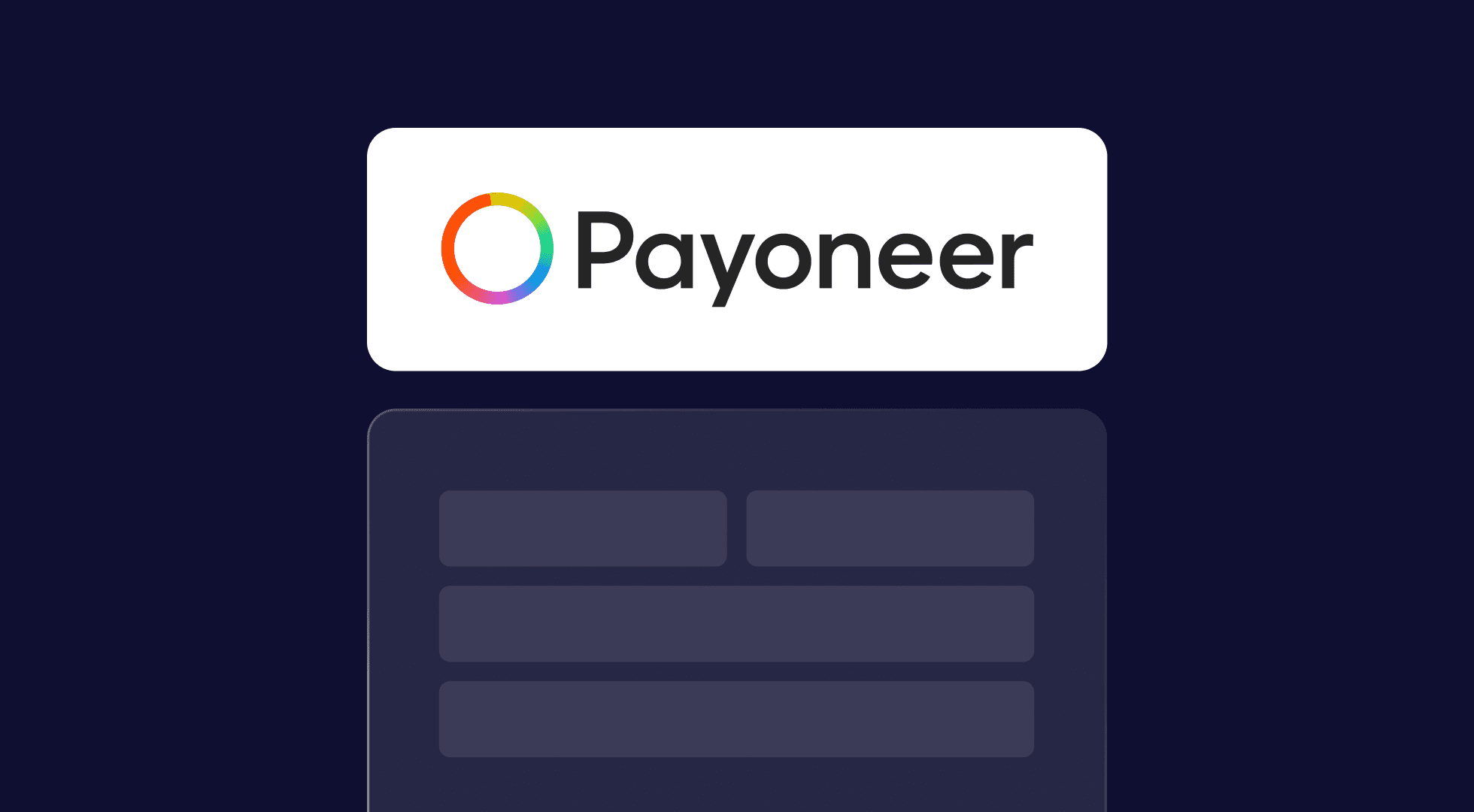How to Create a Payoneer Account? A Quick Guide
Mesan Ali
How to Create a Payoneer Account? A Quick Guide
Payoneer is a financial service company recognized globally. It is an excellent tool for receiving international payments, which makes it widely popular among freelancers, remote professionals, and e-commerce sellers. While it is available in over 200 countries, it is particularly popular in emerging markets like Pakistan, Bangladesh, etc. because of the limited options available.
If you deal in multiple currencies, need to receive international payments, and want to create a Payoneer account, you’re in the right place. This step-by-step guide will walk you through everything you need to do to create a Payoneer account.
Here’s the step-by-step process to help you get started:
Head to Payoneer Website
Start by heading to the Payoneer website.
Click ‘Register’
Click on the ‘Register’ button on the screen's top right-hand side.
Choose Account Type
You’ll now see four different account options to choose from. The 4 account types are:
Freelancer or service provider: Use this account if you work online and offer your services on freelancer platforms like Upwork or Fiverr.
Online seller: Select this account if you are an e-commerce seller on a platform like Amazon or eBay and want to sell internationally.
Marketplace or enterprise: Use this account if you own an online marketplace or a similar platform that handles large volumes of transactions and needs to pay out to sellers, vendors, or service providers.
Small or medium-sized business: This account is for you if you own a small or medium business that operates internationally and needs to streamline its payments, accounting, and invoicing processes.
Once you pick the right account according to your needs, select the option that best describes your usage and then select the monthly limit you need for your account.
Review Suggestion
Payoneer will now recommend an account type that fits your needs. Review the account's offerings and click ‘Register.’
Enter Personal Details
Payoneer will now ask you to enter your personal details, such as your name and email address. Then, you need to enter your security details, which include your password, security question, National ID, etc. Finally, you enter the details of your bank account that link to your Payoneer account.
Agree to Terms and Submit
As a final step, you need to agree to the terms and conditions, and pricing and fees laid by Payoneer and click ‘submit’
Verification Time
After you submit all the details, Payoneer can take 1-5 business days to verify your account before it is activated. If you choose to opt for a Payoneer MasterCard, that can take up to 4 weeks.
Try Elevate Pay For a Better Experience
If you come from an emerging economy, then you can finally look away from Westernized financial solutions. Elevate Pay is designed to support emerging economies by giving them free USD accounts provided by Bangor Savings Bank. Whether you are a freelancer or a full-time remote professional, you can benefit from Elevate Pay. It offers the best FX rates and a flat $1.59 fee for sending money home. More importantly, you can save funds in your USD account for as long you wish to protect it from inflation.
Pros and Cons of a Payoneer Account
Pros
Payoneer allows you to send and receive payments in over 150 currencies from clients and businesses worldwide.
Payoneer offers a prepaid MasterCard that you can use to make purchases online or in stores and withdraw funds at ATMs globally.
Payoneer’s mass payout service allows businesses to send payments to multiple recipients at once.
Payoneer integrates with various e-commerce platforms and freelance marketplaces, including Amazon, Fiverr, and more.
Cons
Payoneer charges an annual account maintenance fee for accounts that have been inactive for a certain period (usually 12 months). This fee can range from $29.95 per year.
Payoneer charges a relatively high transaction fee compared to alternate solutions like Elevate Pay.
While Payoneer supports multiple currencies, the currency conversion fees can be higher than those of some traditional banks or other payment services.
Some users have reported issues with Payoneer’s customer support, including long response times and difficulties in promptly resolving issues.
If you receive payments via credit or debit cards, Payoneer charges a 3% fee on those transactions.
If you order the Payoneer prepaid card, it can take 2-4 weeks for the card to arrive by mail, depending on your location. In some countries, this may be even longer.
If you want to avoid high exchange fees when sending money home, Elevate Pay is an excellent option. You get a free USD account, and the best FX rates. Unlike solutions focused on Western markets, Elevate Pay partners with local payout solutions offering secure and instant transfers to get money home in no time.


